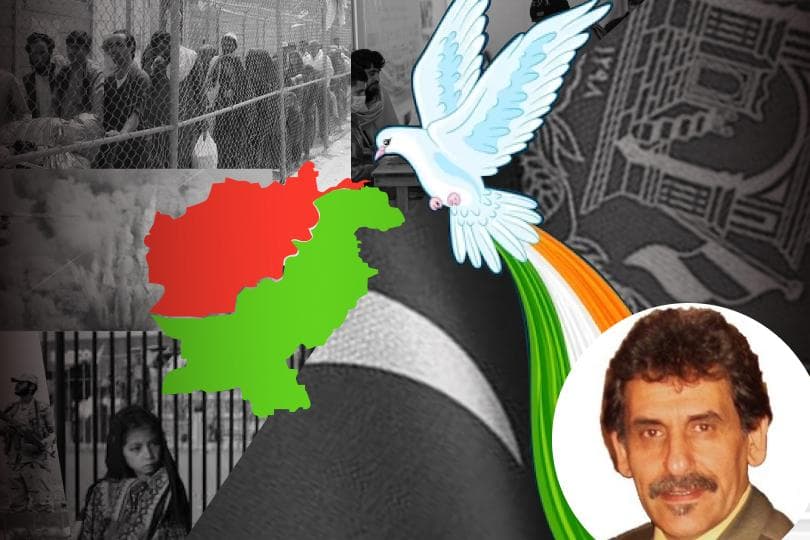The Quagmire of Afghan-Pak Tensions
Navigating complexities, India seeks stability and peace in Afghanistan amidst regional tensions.

The Historical Context and Its Contemporary Implications
The roots of the current conflict trace back to the complex history of South Asian geopolitics, marked by the strategic gamesmanship of the Cold War era, the rise of militant Islamism, and the post-9/11 security landscape. Pakistan's historical support for the Taliban was part of a broader strategy to ensure a friendly government in Kabul that could provide strategic depth against India. However, this strategy has backfired, leading to the emergence of militant groups like the TTP, which have turned against the Pakistani state itself.
The transformation of the Taliban from a strategic asset to a security threat for Pakistan underscores a broader regional paradox where short-term strategic gains have led to long-term instability. For India, this presents a lesson in the dangers of over-reliance on non-state actors in pursuit of geopolitical objectives. As India navigates its role in the changing security dynamics of Afghanistan post-Taliban resurgence, it must be wary of the unintended consequences of its actions and policies.
India's Multifaceted Approach to Regional Stability
India's response to the evolving situation in Afghanistan and its implications for regional security must be multifaceted, balancing immediate security concerns with long-term strategic interests. The following are key components of such an approach:
- Diplomatic Engagement and Multilateralism: India must continue to leverage its diplomatic channels and international partnerships to advocate for a peaceful resolution to the Afghanistan-Pakistan conflict. Engaging with multilateral organisations, such as the United Nations, the Shanghai Cooperation Organisation, and the SAARC, could provide platforms for dialogue and conflict resolution. Diplomatic engagement should also include direct talks with all parties involved, including the Taliban, to ensure that India's interests are represented in any future political settlement in Afghanistan.
- Counterterrorism and Security Cooperation: The resurgence of the TTP and its implications for regional terrorism underscore the need for enhanced counterterrorism cooperation among regional states, including India, Pakistan, and Afghanistan. India could propose regional security initiatives aimed at intelligence sharing, border security, and counter-radicalisation efforts. While the prospects for cooperation with Pakistan on counterterrorism are challenging, given the trust deficit, initiatives involving other regional players could be more feasible and effective.
- Humanitarian Aid and Development Assistance: India's soft power is one of its most significant assets in Afghanistan. Continuing to provide humanitarian aid and development assistance, especially in sectors like health, education, and infrastructure, not only addresses the immediate needs of the Afghan population but also builds goodwill towards India. These efforts should be sensitive to the changing political dynamics in Afghanistan, ensuring that aid is delivered in a manner that benefits the Afghan people directly and contributes to long-term stability and development.
- Strategic Communication and Information Warfare: In the digital age, the battle for narratives plays a crucial role in shaping international perceptions and policies. India must engage in strategic communication to counter misinformation and present its perspective on the Afghanistan-Pakistan conflict and its role in the region. This includes highlighting its contributions to Afghanistan's development, its efforts towards regional stability, and its stance against terrorism. By effectively communicating its narrative, India can counteract adversarial propaganda and influence international opinion.
- Economic Engagement and Connectivity: Long-term stability in Afghanistan and the broader region is inextricably linked to economic development and connectivity. India should explore opportunities for economic engagement in Afghanistan, including investment in natural resources, infrastructure, and trade. Additionally, India could champion regional connectivity projects that integrate Afghanistan with South and Central Asia, promoting economic integration and cooperation. Such initiatives not only serve India's economic interests but also contribute to regional stability by creating interdependencies and promoting economic development.
The Role of the International Community
The international community has a vested interest in the stability of South Asia, given its strategic importance and the potential for conflict in the region to have global repercussions. The United States, European Union, China, Russia, and other major powers must play a constructive role in facilitating dialogue and supporting efforts towards a peaceful resolution of the Afghanistan-Pakistan conflict. International pressure on Pakistan to curb its support for militant groups and a coordinated approach to aid and development in Afghanistan are critical components of such an effort.
Furthermore, international sanctions and diplomatic pressure could be leveraged to incentivise peace and cooperation. However, these measures must be carefully calibrated to avoid exacerbating the humanitarian situation in Afghanistan or pushing Pakistan into a corner, which could have counterproductive effects.
End Note
The conflict between the Taliban regime and the Pakistani military, with its profound implications for regional stability, highlights the need for a comprehensive and nuanced approach to security and diplomacy in South Asia. For India, this situation presents both challenges and opportunities to assert its role as a regional power committed to peace, stability, and development. By adopting a multifaceted strategy that includes diplomatic engagement, counterterrorism cooperation, humanitarian aid, strategic communication, and economic initiatives, India can contribute to resolving the current crisis and shaping a more stable and prosperous South Asia.
Achieving peace in the region is a complex and daunting task, requiring patience, strategic vision, and the collective efforts of all stakeholders. The path forward is fraught with challenges, but with concerted effort and commitment to dialogue and cooperation, a peaceful and stable South Asia is within reach. This vision for the future, grounded in mutual respect, cooperation, and shared prosperity, is the guiding light for India's approach to the unfolding situation in Afghanistan and its broader regional strategy.

Nasir Khalid 🇨🇦
Deep Dive
Escalating Tensions: The Pakistan army and the Taliban have clashed along the Durand Line
Tricky Ties: Pakistani Prime Minister Imran Khan had described the Taliban's takeover of Kabul as "breaking the chains of slavery."
Going Sour: Pakistan's deportation of 1.7 million "undocumented" refugees to Afghanistan in 2023 signified worsening relations between the two nations.
Exploring Expansion: In March 2024, an Indian delegation met with the Taliban's Foreign Minister to discuss economic and transit issues.
Continued Commitment: India has continuously provided humanitarian aid to Afghanistan, including COVID-19 vaccines, medical supplies, disaster relief, and wheat supply.


































